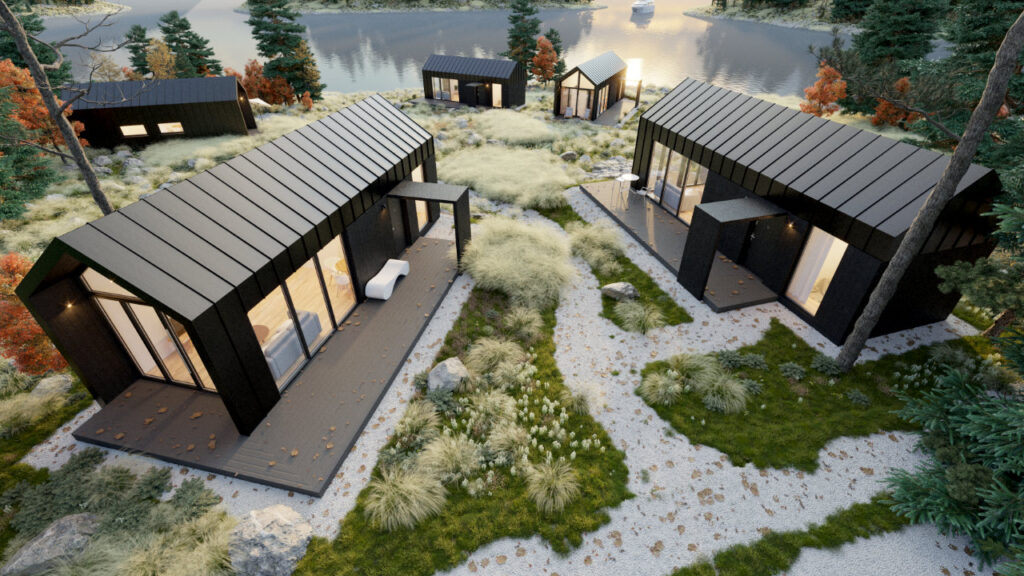
Modular housing market trends and current developments
The concept of modular homes has seen a substantial shift in the past few years. With growing environmental concerns and the need for cost-effective housing solutions, the modular housing market trends are evolving rapidly. These homes provide a perfect blend of flexibility, sustainability, and aesthetic design, making them a popular choice among homeowners.
As we delve into the current modular housing market trends, it is evident that technological advancements, along with changing consumer preferences, are driving this market upward. As more people become conscious of their carbon footprint, prefabricated structures are emerging as a viable alternative to traditional housing.

Understanding Modular Homes
Modular homes are prefabricated houses that consist of multiple sections known as modules. These modules are produced in a factory setting, which ensures precision and reduces material waste. Once completed, they are transported to the desired site for final assembly. This process is not only efficient but also reduces the overall construction time significantly.
Environmental Impact
In today’s world, the emphasis on sustainability has never been greater. Modular housing offers an eco-friendly alternative to traditional home construction. By designing these homes in a controlled factory environment, waste is minimized and energy efficiency is maximized, contributing to a greener planet.
Cost-Effectiveness
The cost benefits of modular homes are appealing. These homes are less expensive to build, as their production in a factory reduces labor costs and construction time. In comparison to a traditional home, which might take months to complete, a modular home can be ready in weeks, representing a significant saving both in time and money.
Current Market Trends
Growing Demand
There’s an increasing demand among consumers for affordable housing, and modular homes present a feasible solution. They cater to various needs and budgets, making them accessible to a wider audience.
Technological Advancements
Technology plays a pivotal role in the evolution of modular housing market trends. From advanced building materials to sophisticated design software, technology is transforming how these homes are planned and built. You can visit climate resilient modular housing for eco-friendly solutions.
Future Prospects
The future of modular housing looks promising. As technology continues to develop, these homes will become even more customizable, durable, and energy-efficient. The focus on energy-efficient buildings is set to redefine modern living, adapting to the needs of a changing world.
Customization
Homeowners are given the freedom to choose from a variety of designs and finishes, meaning their homes can reflect personal tastes without compromising on quality. With the right guidance, you can even integrate smart technology and space-saving furniture, as discussed in smart gadgets for modular homes.
Challenges and Considerations
Despite the benefits, there are challenges that the modular housing industry faces. Zoning regulations and financing options can sometimes pose a hurdle. Nonetheless, industry experts are optimistic that these challenges can be mitigated with better policies and consumer education.
Conclusion
The trajectory of modular housing market trends indicates a robust growth pattern supported by technological advancements and a strong push towards sustainability. As the market grows, it promises to reshape the landscape of residential housing.

Frequently Asked Questions
What are modular homes and how do they differ from traditional homes?
Modular homes are prefabricated structures made from multiple sections constructed in a factory. They differ from traditional homes as they are not built onsite, reducing construction time and costs significantly.
Are modular homes environmentally friendly?
Yes, modular homes are considered environmentally friendly due to reduced waste and energy consumption during their production. Their construction in a controlled environment also allows for enhanced energy efficiency.
What can we expect from the future of modular housing?
We can expect the future of modular housing to bring more advanced customizations, better energy efficiency, and a wider acceptance as a sustainable building practice.
This article contains affiliate links. We may earn a commission at no extra cost to you.